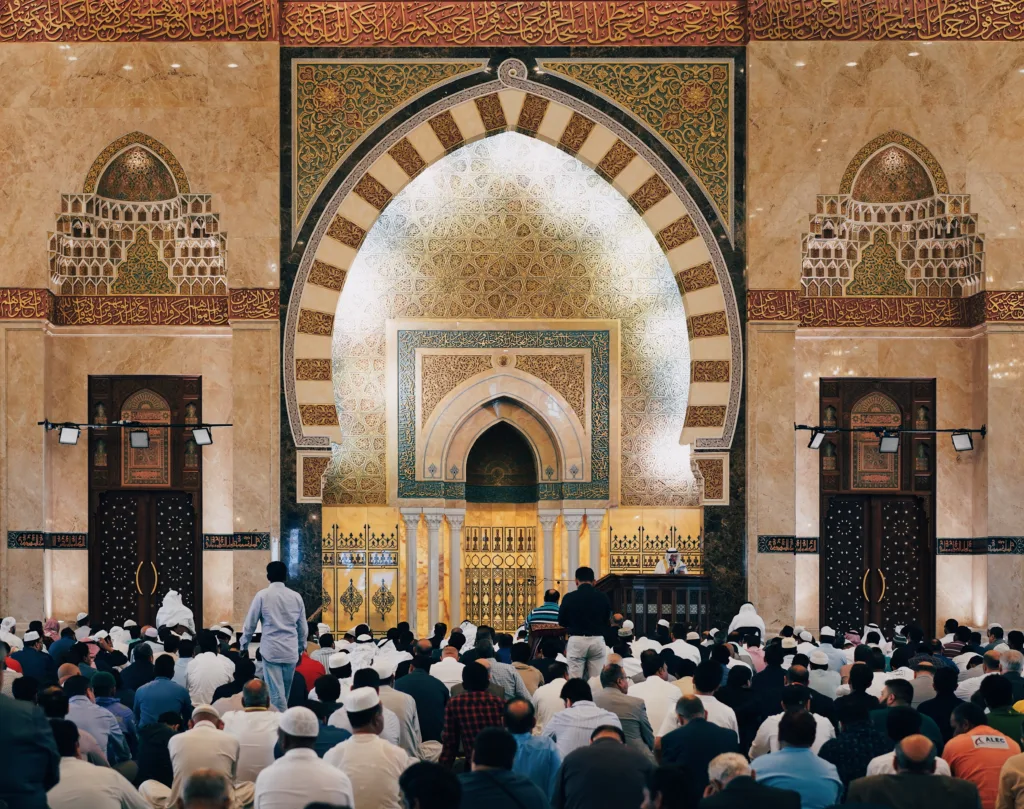Ramadan is a holy month observed by millions of Muslims around the world. It is a time for fasting, prayer, and reflection. During this month, Muslims abstain from food and drink from sunrise to sunset, and focus on self-discipline, charity, and spiritual growth. It is a time for Muslims to strengthen their connection with Allah and to renew their faith.
One of the most common greetings during Ramadan is “Ramadan Mubarak”. This phrase is used to wish someone a happy Ramadan. It is a way of acknowledging the importance of the month and showing support for those who are fasting. Responding to Ramadan Mubarak is an important part of the greeting, and there are several appropriate responses.
One common response is “Ramadan Kareem”. This phrase means “Generous Ramadan” and is used to wish someone a generous or bountiful Ramadan. It is a way of acknowledging the blessings of the month and the importance of charity and generosity.
Another response is simply “thank you”. This response is appropriate when someone wishes you a happy Ramadan, but you are not fasting yourself. It shows appreciation for the sentiment and respect for the importance of the month.
For those who are fasting, a common response is “Ramadan Mubarak to you too”. This response acknowledges the importance of the month and shows solidarity with fellow Muslims who are observing Ramadan.
It is important to remember that Ramadan is a time of spiritual reflection and growth. The greeting of Ramadan Mubarak is a way to acknowledge the importance of the month and to show support for those who are fasting. The response should be respectful and appropriate, and should reflect the spirit of the month. Whether you respond with “Ramadan Kareem”, “thank you”, or “Ramadan Mubarak to you too”, the most important thng is to show respect and appreciation for the importance of the month.
How Do You Respond To Ramadan Mubarak Back?
If someone wishes you Ramadan Mubarak, it is customary to respond with the phrase “Ramadan Kareem” wich is an Arabic phrase that means “Generous Ramadan”. This phrase extends good wishes to the person who is fasting during this holy month, and expresses hope for a blessed and generous month. Alternatively, you can also respond with “Ramadan Mubarak” which is a common response to the initial greeting. It is important to note that these phrases are used to show respect and solidarity with those who are observing Ramadan, and to wish them a successful and fulfilling month of fasting and spiritual reflection.

How Do You Thank Someone For Ramadan Wishes?
When thanking someone for Ramadan wishes, it is important to express gratitude for their kind words and acknowledge the significance of the occasion. A simple message such as “Thank you for your Ramadan wishes, they mean a lot to me” can be a good starting point. However, to show your appreciation in a more meaningful way, you can also add a personal touch to your message by sharing a heartfelt prayer or sending your own Ramadan greetings in return. Another way to express your gratitude is by sharing a small gift or token of appreciation such as a box of dates or a card with a special message. Regardless of how you choose to thank someone for their Ramadan wishes, the most important thing is to do it with sincerity and respect.
What Is The Reply Of Eid Mubarak?
The appropriate response to the greeting of Eid Mubarak is “Khair Mubarak” which can be translated to “May you have a blessed holiday.” Another common response is “Eid samekum” which translates to “May you have a happy Eid as well.” Additionally, some people may respond with “Allahu Akram” which means “God is the most generous” or “JazakAllah Khair” which means “May Allah reward you with goodness.” It is also common to simply say “thank you” in response to the greeting.
Conclusion
The appropriate response to Ramadan Mubarak is Ramathon Kareem or Ramathon Mubarak, which conveys a message of respect, honor, and blessings to the person who is fasting durig this holy month. It is essential to acknowledge and appreciate the heartfelt greetings and wishes that are shared during this time. Responding with gratitude and reciprocating the blessings is a vital aspect of the Ramadan tradition. Using synonyms and avoiding repetition in our response messages can add depth and meaning to our communication, making it more impactful and sincere. Let us embrace the spirit of Ramadan and spread positivity and love through our words and actions.
